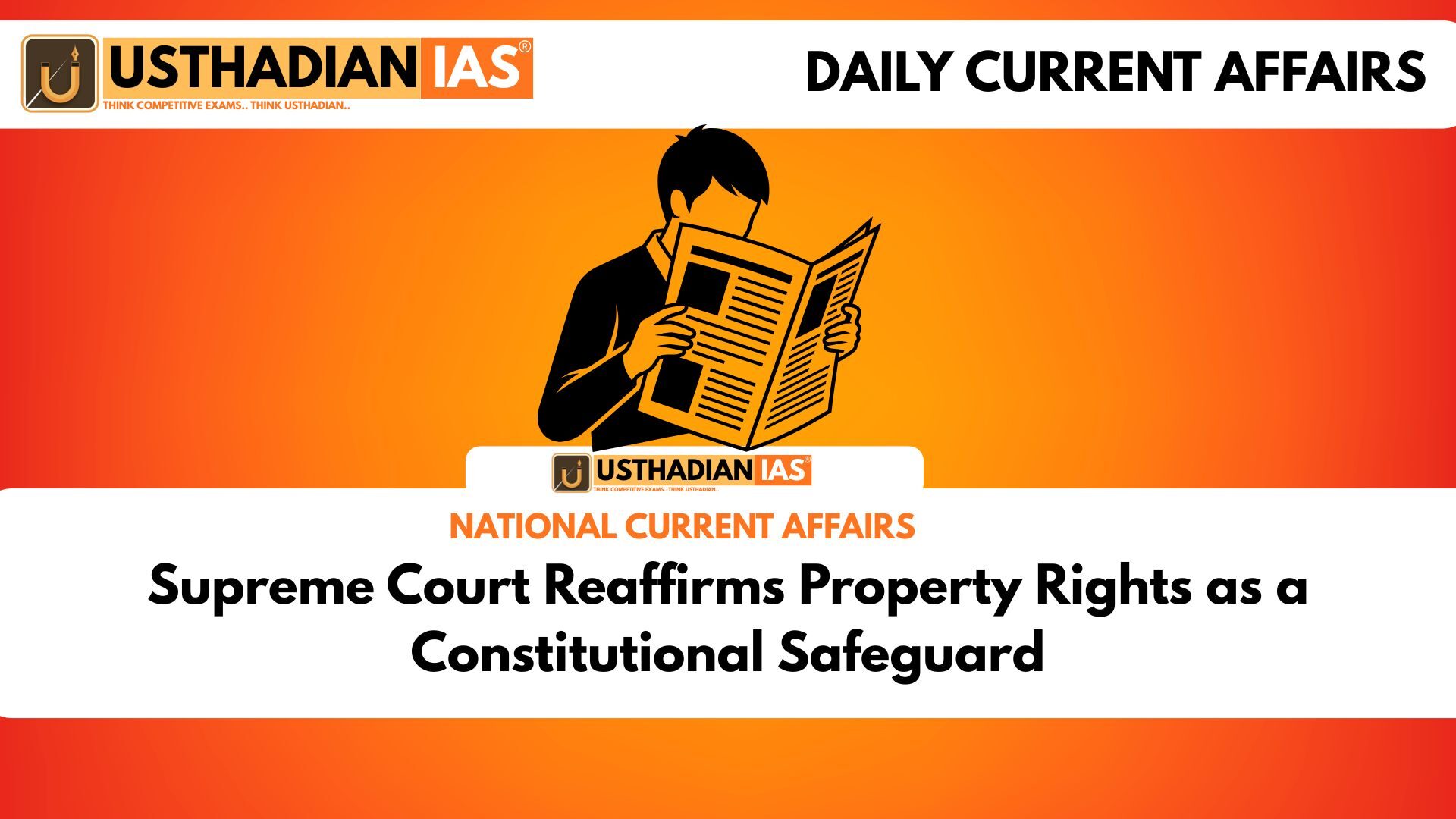Not Just Land—A Fight for Justice
Supreme Court Reaffirms Property Rights as a Constitutional Safeguard: In a major ruling that echoes far beyond courtrooms, the Supreme Court has reaffirmed that property rights, while no longer fundamental, remain constitutionally protected. The case centered on landowners waiting for decades to be compensated for land taken for the Bengaluru-Mysuru Infrastructure Corridor Project. The message from the court was sharp and clear—development cannot override justice.
When land is taken without timely compensation, it’s not just a legal issue—it becomes a human one. The Supreme Court reminded the government that citizens must be treated fairly under the law, even when the state needs land for public use.
From Fundamental to Constitutional: The Journey of Article 300A
Many are surprised to learn that the right to property was once a fundamental right under Articles 19(1)(f) and 31. But in 1978, the 44th Constitutional Amendment removed it from that list, placing it under Article 300A instead. This article states, “No person shall be deprived of his property save by authority of law.”
What does that mean today? Simply put, the state must follow due process and offer proper compensation if it wants to take your land. It’s not a symbolic gesture—it’s a real protection for the people.
Supreme Court’s Verdict: Delayed Compensation is Injustice
In the latest case, the Court didn’t hold back. It criticized the Karnataka government for delaying payments to landowners and used Article 142 to shift the compensation year from the original date of acquisition to 2019. That single move ensured that people received payment at current market value, correcting a long-standing wrong.
The Court called out the injustice directly: “Justice delayed is justice denied.” It also emphasized that property rights are closely tied to basic human needs like shelter, dignity, and livelihood.
Eminent Domain: Power with Limits
Yes, the state has the power of eminent domain—the legal right to take private land for public purposes. But this isn’t a blank cheque. The Supreme Court clarified that this power must be used transparently, with clear reasons and timely, fair compensation. Otherwise, it undermines public trust and violates constitutional protections.
Legal Milestones That Still Matter
This isn’t the first time the courts have stood up for property rights. Cases like Vidya Devi v. State of Himachal Pradesh, Ultra-Tech Cement v. Mast Ram, and Jilubhai Khachar v. Gujarat have all emphasized that compensation cannot be symbolic—it must be just. These rulings have helped shape a stronger legal foundation for citizens across India.
Why This Verdict Matters for You
Whether you’re a student, a farmer, or a homeowner, this verdict reinforces a basic truth: your rights don’t disappear just because land is involved. It also highlights the role of the judiciary in defending citizens, especially when governments fall short.
For exam aspirants, this judgment is a powerful case study in constitutional law, governance, and justice delivery.
STATIC GK SNAPSHOT FOR COMPETITIVE EXAMS
Supreme Court Reaffirms Property Rights as a Constitutional Safeguard:
| Key Fact | Detail |
| Original Status of Property Right | Fundamental Right under Articles 19(1)(f) and 31 |
| Changed by | 44th Constitutional Amendment, 1978 |
| Current Protection | Article 300A – Constitutional Right |
| Recent Case | Bengaluru-Mysuru Corridor Land Dispute |
| Supreme Court Power Used | Article 142 – Complete Justice |
| Eminent Domain Principle | Land can be acquired for public use with fair legal process |
| Important Cases | Vidya Devi, Ultra-Tech Cement, Jilubhai Khachar |
| Exam Relevance | UPSC, TNPSC, SSC, Judiciary, Banking |








